Hey! Today is Saturday, August 12th, 2023. This was the Ukweli 2023 team’s sixth full day in Sierra Leone.
Our first weekend in Sierra Leone, woo! The program slept in yesterday, with a later breakfast and departure time than the weekdays. Following a night of chess games and engaging discussions, we added a touch of relaxation to the day. The morning greeted most of us with an unexpected chill. Initially attributing it to the air conditioner, we soon realized that the persistent cold was due to the rain pouring all night long. It was the most rainfall of any day yet.
Our pop-up plans to visit a nearby health clinic today were shelved due to bad weather. However, we compensated with a delightful pancake breakfast and a cozy yet crowded ride to World Hope International. Six of us were squeezed into the back of a pickup truck. Reeza Chaulagain found herself on Brooke Lee’s lap, and Lorraine Rwasoka sat on Olivia Soder’s. The World Hope International office is empty on the weekends.

Global Social Impact Fellows Olivia Soder and Hannah Falatko.
Last night, Lorraine Norman Zvenyika finally arrived in Bombali. Their arrival in a vibrant yellow taxi last night felt like it must have been smoother than the bus we took. Their presence transformed the atmosphere of our day, giving us some life and excitement into what would have been an otherwise slow day. The delay with the Institutional Review Board approval has been very tedious. We do not have control over the situation, unfortunately. Still, we have found ways to make progress on our ultimate goal of improving the lives of mothers in Sierra Leone.
Yesterday, we gave Lorraine a whole breakdown of our project and questions so far. She loved the look of everything. From the question bank (over thirty now), we narrowed our first draft of questions to the best ten. We feel as though the ones we selected will give us the most holistic understanding of Sierra Leonean women’s perception of cervical cancer and receptiveness to human papillomavirus vaccination.
Here are the ten we chose to ask:
- Do you know what cervical (mouth of the womb) cancer is?
- Do you know what HPV (human papillomavirus) is?
- Have you heard about the HPV vaccine? If so, what do you know about it?
- Do you think cervical cancer is a significant health concern in Sierra Leone? Why or why not?
- Have you ever been screened for cervical cancer (e.g., Pap smear, HPV test)? If not, what are the reasons you have not been screened?
- Would the public shame or treat another woman differently if she had cervical cancer? If yes, how does it affect that woman’s willingness to go to the doctor?
- What sources of information do you trust when learning about cervical cancer and the HPV vaccine?
- How do you feel about the future of stopping cervical cancer prevention and taking the HPV vaccine in Sierra Leone?
- Do you know of any programs that aim to prevent cervical cancer or promote the HPV vaccine? How did it benefit you?
- Would you be willing to vaccinate yourself or your child with the HPV vaccine?
Exercising flexibility and using our intuition to see the depth to which a woman is responding to the questions, as well as listening to her awareness level surrounding cervical cancer, will open up doors to other questions that require more information to analyze. These are typically questions about government protocols, community leadership, and cultural stigmas.
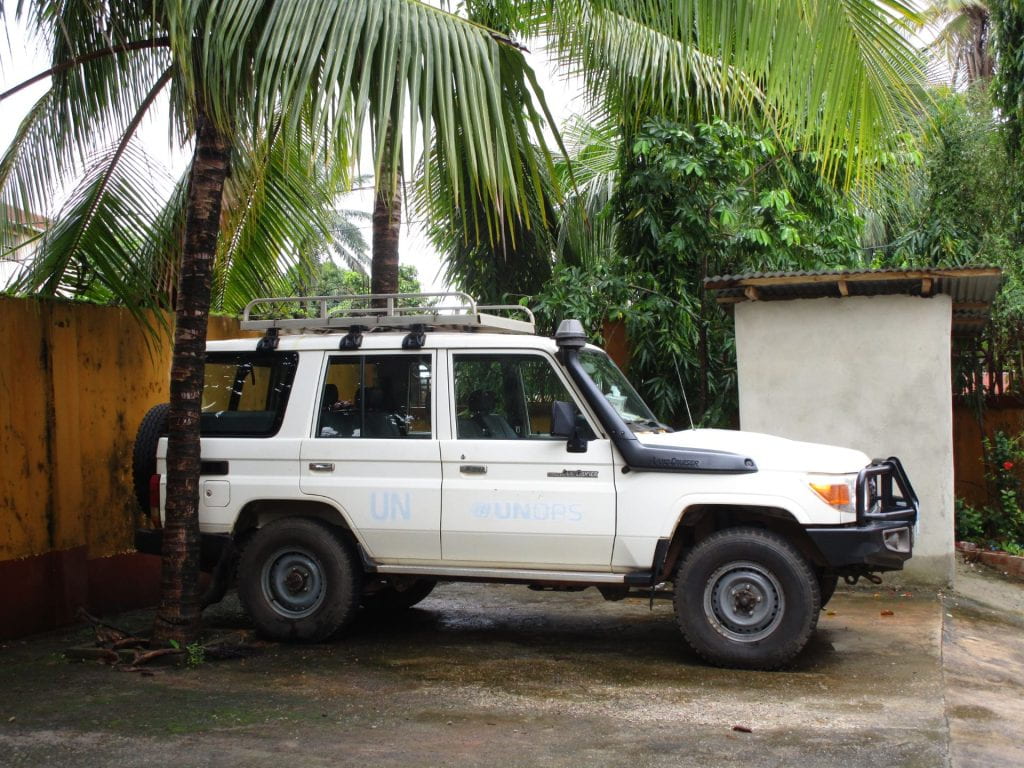
United Nations truck spotted at World Hope International.
We dedicated the rest of our early afternoon to crafting explanatory blurbs on cervical cancer and human papillomavirus. Noah supported our idea to prepare information to educate anyone who responded they did not know about these things at the beginning of the interviews.
Additionally, we delved into previously published papers on cervical cancer and women’s health. We explored the outcomes of research experiences similar to our in-country immersion, finding ways to collaborate information and arrive out of this year’s fieldwork journey with actionable steps towards mending the crisis. To even be here itself is a step towards our goal, of being able to speak with so many bright minds and kind Sierra Leoneans about our work. People in Makeni are interested and receptive to the research we are pursuing so far, and we hope this continues as we branch out to more rural areas for the official interviewing.
As the hours passed, we ate coconut cookies and chatted with each other. There is not much more that may be done now to prepare. The flooding subsided after a few hours, and it was surprising how fast the sun dried up the rain. In the afternoon, the program embarked on an adventure to the village of Magbento. Magbento is not too far out from Makeni, but it is certainly a rural village.

The village of Magbento.
Despite the tight quarters of the pickup truck, our view of swamps and majestic palm trees was a beautiful experience. Stepping off the truck, we were attacked by wild ants, promptly mitigated by our insect repellent. A dozen bottles of bug spray lingered as we ventured into the forest, guided by charming local kids, on a hike to the river! Their kindness is heartwarming. We were met with half a village at the river. The Magbento residents are incredibly kind. The children enjoyed singing, dancing, mimicking, and playing games some of the girls showed them. This experience felt surreal–how many opportunities may we have in our lives to hike to a Sierra Leonean river?!
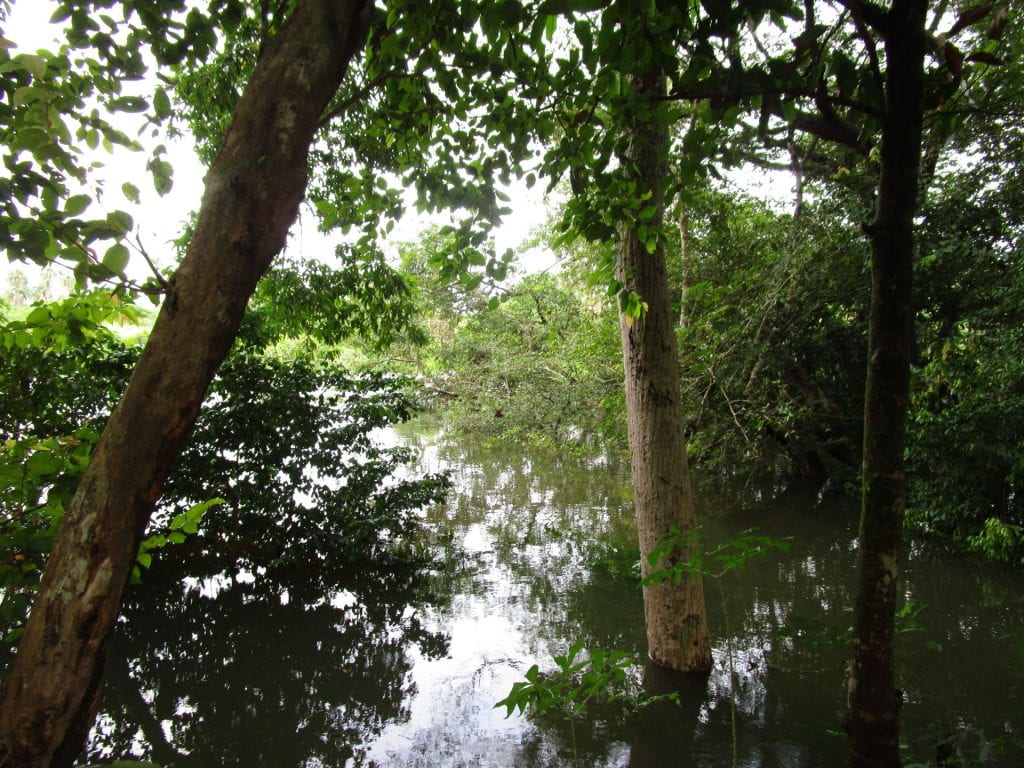
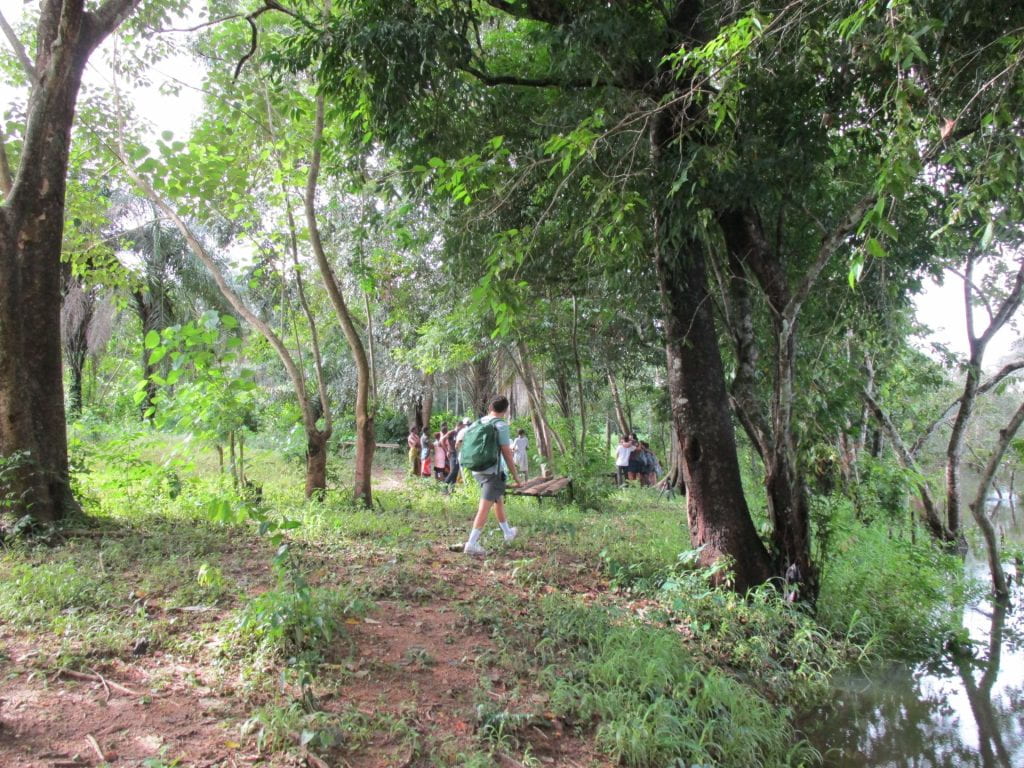
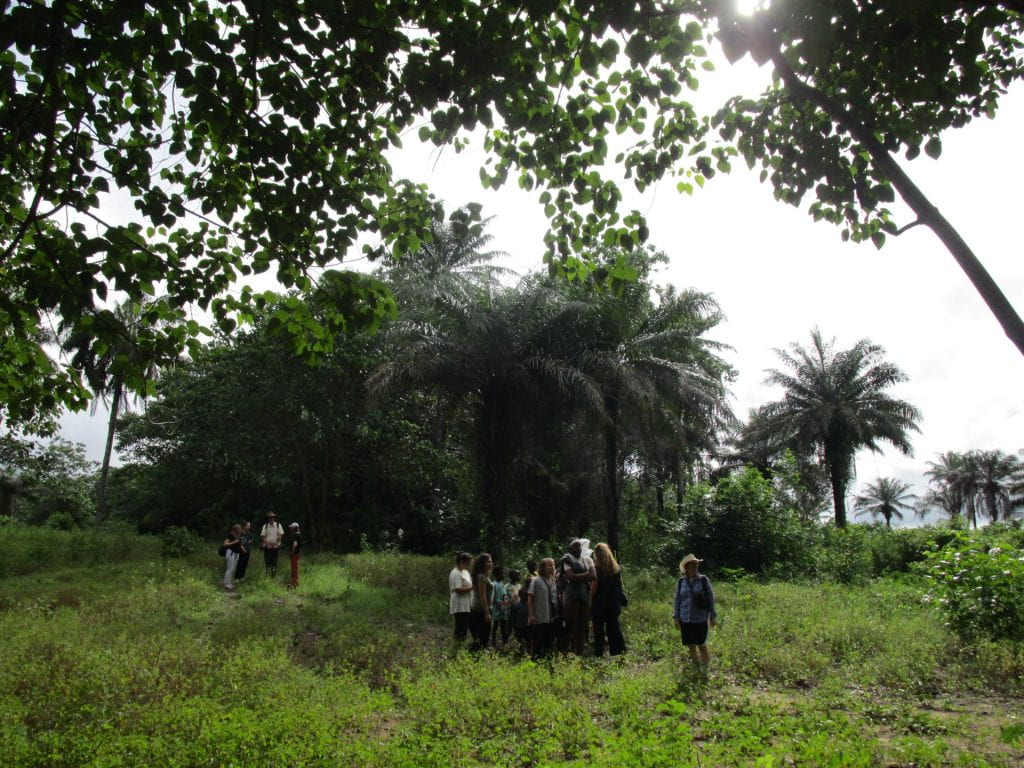
Magbento is a quaint village and became the stage for a lively soccer match with the women of the village. Their competitiveness was palpable. It is amazing how athletically gifted the children were. They’d never lose stamina or energy after hours of running. Mohammed Jawara treated us to some pine wine, and the flavor was great. It’s straight from the trees!

They kept up for over a mile behind our truck.
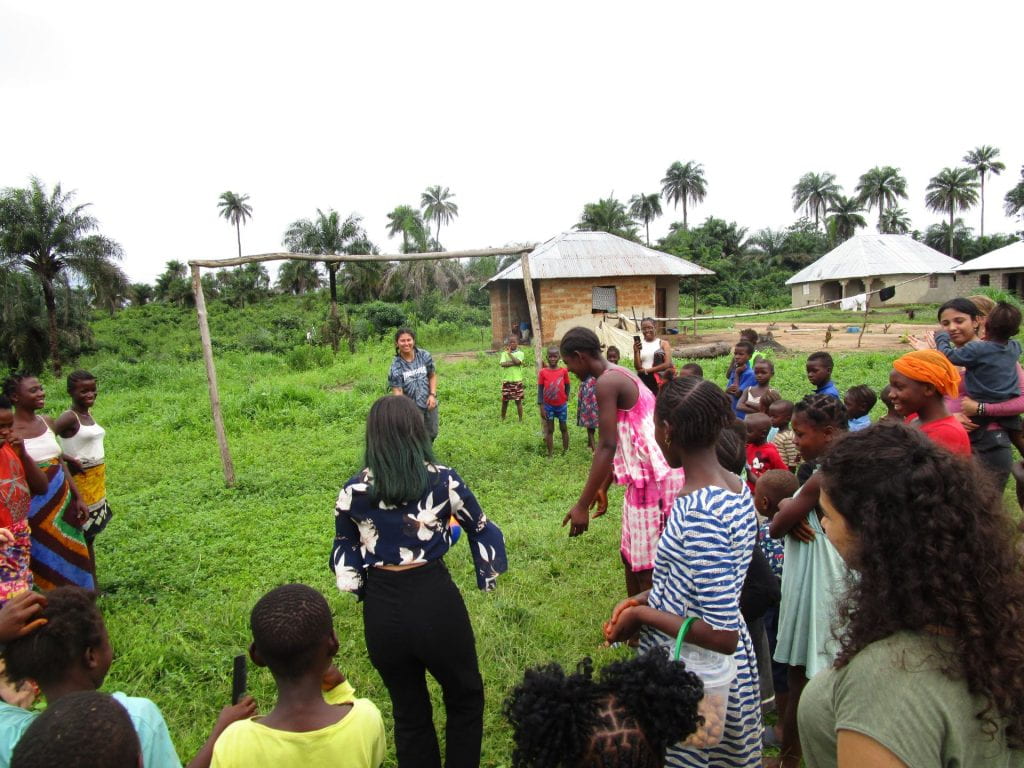
Reeza squares up for a free kick against Sofía Espinoza.
After that, we returned to our usual dining spot for dinner, then visited a nearby local tailor to purchase some beautiful fabric. Everyone then gave our measurements for custom tailoring. The experience was awesome–we engaged in negotiations and selected some lovely African prints. Lorraine, Reeza, and Brooke bought dresses. Sterling bought a skirt.
We came home tonight, and everyone needed a bit of time to relax after the long hike. Our team eventually came to Reeza’s room, playing Egyptian Rat Screw and chatting for a while. When the main hall opened up after a meeting, students met in there, played games, laughed, and enjoyed each other’s company all night. It is lovely to be around each other. It is crazy to think we’ve all been in class with each other all this time without really interacting, yet here we are, five teams, twenty-five-ish people, spending each night together in West Africa, playing games, sharing drinks, and laughing.
With nights like these, it makes us not mind our missing research approval so much. It reminds us that we are here. We are in Sierra Leone. And there is so much to be grateful for.

Our friends in Magbento!
Until next time, yours truly,
Ukweli 2023